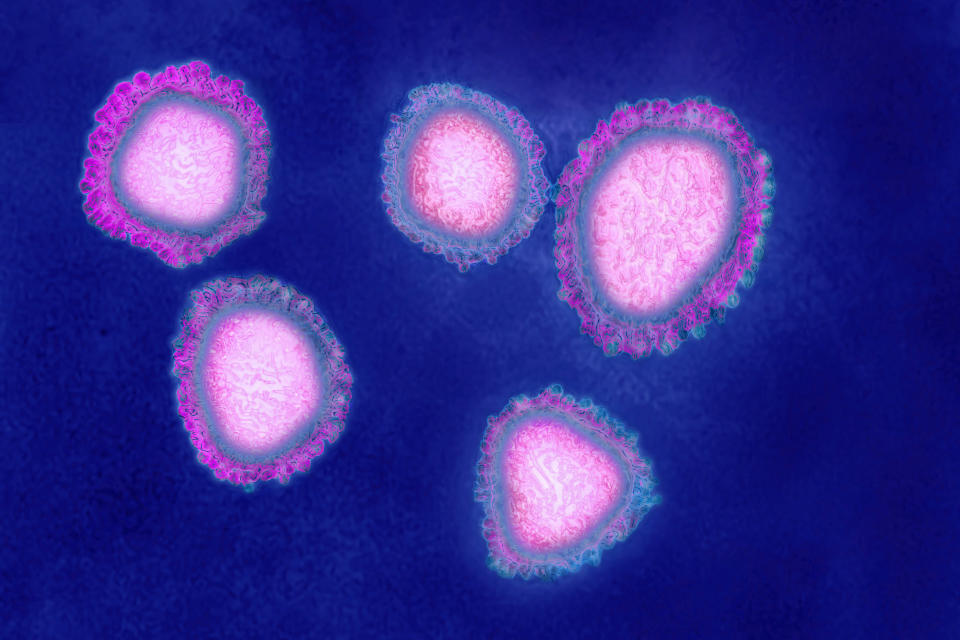Coronavirus: Government updates advice over fears deadly disease may spread to UK
The government has updated its advice on the deadly coronavirus as the disease starts to spread from China.
At least 17 people people have so far died and 291 people have been infected, while the US has reported its first case after a man in his 30s arrived from China.
North Korea has already placed a ban on foreign tourists to stop the spread of the disease, and the UK government has now updated its guidance.
Public Health England (PHE) confirmed it was monitoring the situation.
The government said control of the virus “relies on the prompt identification, appropriate risk assessment, management and isolation of possible and confirmed cases”, as well as an “investigation and follow up of close contacts to minimise potential onward transmission”.

The Department for Health said: “We have been carefully monitoring the situation in Wuhan for some time and are ready to put in place proportionate, precautionary measures.
“From today, enhanced monitoring will be in place from all direct flights from Wuhan to the UK. The enhanced monitoring package includes a number of measures that will help to provide advice to travellers if they feel unwell.”
People travelling back from Wuhan will be able to speak with Port Health teams on flights who will check for symptoms if they feel unwell, while leaflets about the virus will be available to all passengers.
The Department for Health added: “Based on the emerging evidence regarding case numbers, potential sources and human to human transmission, the risk to the UK population has currently been assessed as low. This has been raised from very low due to current evidence on the likelihood of cases being imported into this country.”

Transport secretary Grant Shapps said PHE is putting in place new precautions in relation to travellers to the UK from the region of China at the centre of the coronavirus outbreak.
He told Sky News: “There have been some announcements this morning about flights that come direct from the affected region to Heathrow with some additional measures there.
“At the moment PHE have moved this from ‘very low’ to ‘low’ but obviously we want to stay ahead of the issue so we are keeping a very close eye on it.
“Initially this is to ensure that when flights come in directly into Heathrow there is a separate area for people to arrive in.”

Dr Nick Phin, PHE deputy director, previously said: "We have issued advice to the NHS and are keeping the situation under constant review.
"People travelling to Wuhan [in China] should maintain good hand, respiratory and personal hygiene and should avoid visiting animal and bird markets or people who are ill with respiratory symptoms.
"Individuals should seek medical attention if they develop respiratory symptoms within 14 days of visiting Wuhan, either in China or on their return to the UK, informing their health service prior to their attendance about their recent travel to the city.”
READ MORE FROM YAHOO NEWS UK:
As a virologist, I can tell you all you need to know about the coronavirus – and why you can stop panicking
European shares dip as Chinese coronavirus concerns deepen
China coronavirus: What are the symptoms, where has it spread and is there treatment?
A 32-year-old British man in Thailand is feared to have contracted the virus after coming down with flu while on holiday on Koh Phi Phi Island.
Ash Shorley was said to have been “days from death” and remains in a critical condition in hospital.
Yahoo News UK has contacted the Department for Health and Social Care for comment.

What is the coronavirus?
Coronaviruses are a large family of viruses that cause illnesses ranging from the common cold to more severe diseases such as severe acute respiratory syndrome (Sars). The strain that has recently emerged is a new strain that has not been previously identified in humans.
How did it come about?
Coronaviruses are zoonotic, meaning they are transmitted between animals and people, the World Health Organization (WHO) says. The first cases identified were among people connected to the Huanan Seafood Wholesale Market in the Chinese city of Wuhan. Cases have since been identified elsewhere that could have been spread through human-to-human transmission.


How is it spread?
Questions remain about the outbreak's nature and mode of transmission. Chinese government expert Zhong Nanshan revealed on state television that human-to-human transmission had been confirmed. The WHO says some coronaviruses can be transmitted in this way, usually after close contact with an infected person, for example, in a household workplace or healthcare centre.
What are the symptoms?
Initial symptoms of the novel coronavirus include fever, cough, tightness of the chest, shortness of breath and breathing difficulties. More severe cases can cause pneumonia, severe acute respiratory syndrome, kidney failure and death. There are no specific treatments for a new coronavirus but symptoms can be treated.

 Yahoo News
Yahoo News 

